Are you ready to take your business to the next level? When it comes to confirming consultancy services, having a clear and professional letter can make all the difference. Not only does it set the tone for a collaborative relationship, but it also ensures that all parties are on the same page. Curious about how to craft the perfect confirmation letter? Let's dive in!

Clear Service Description
Consultancy services encompass a range of specialized advisory roles tailored to meet the unique needs of businesses across various sectors. Services include strategic planning, where experienced consultants work closely with organizational leadership to define company objectives and develop actionable plans. Another key service is market analysis, involving comprehensive research to identify industry trends, competitive positioning, and potential customer segments. Additionally, implementation support offers guidance on executing new strategies, ensuring solutions are seamlessly integrated into operations. Other offerings may include risk management assessments, where consultants identify vulnerabilities within a company's processes and recommend effective mitigation strategies. Overall, these services aim to enhance operational efficiency and promote growth within the client's organizational framework.
Payment Terms and Conditions
Consultancy services often involve clear payment terms and conditions to ensure mutual understanding between consultants and clients. For instance, a consultancy agreement may stipulate payment upon invoice receipt, typically within 30 days, reflecting standard practices in the consulting industry. Additionally, late payments may incur a fee, often 1.5% per month, providing an incentive for timely payments. Consultation fees can vary significantly; for example, hourly rates might range from $100 to $300, depending on the consultant's expertise and the project's complexity. Advance payments or retainers may also be required, securing the consultant's availability for the project duration. Furthermore, detailed invoices should outline all services rendered, facilitating transparency and maintaining professional standards in the consultancy field.
Confidentiality Obligations
Consultancy services often require a robust framework for maintaining confidentiality. Confidentiality Obligations ensure that sensitive information shared during the consultancy process remains protected. These obligations typically include clauses that specify the limitations on how shared data can be used, outlining clear repercussions for any breaches. Key elements may involve non-disclosure agreements (NDAs) which can define 'confidential information' with precision, including proprietary data, trade secrets, and client-specific insights. Stakeholders involved in the consultancy, such as the consultant (an external advisor skilled in a particular field) and the client (the entity seeking expertise), must commit to these confidentiality standards. Defining the duration of the obligations is crucial, often extending to several years post-engagement. Proper adherence ensures the preservation of trust and the integrity of both parties throughout and after the consultancy relationship.
Key Dates and Deadlines
Confirmation of consulting services involves establishing key dates and deadlines that outline project milestones and deliverables. Initial project kickoff meeting scheduled for January 15, 2024, will set the foundation for the timeline. The first milestone report, due on February 15, 2024, will evaluate progress and ensure alignment with client expectations. Additional deadlines include draft submission of the final report on March 30, 2024, followed by revisions and feedback sessions concluding by April 15, 2024. Final deliverables will be submitted on April 30, 2024, ensuring that all contractual obligations are met with precision and timeliness.
Terms of Agreement Termination
Consultancy service agreements outline the terms regarding the end of a professional relationship. Effective termination clauses detail conditions that enable either party to conclude services without legal repercussions. Common reasons for termination include breach of contract, non-performance, or mutual consent. Consultancies often require written notice, typically ranging from 30 to 90 days, ensuring all parties have adequate time to settle accounts. It is essential to clarify remaining obligations in this closure phase, such as confidentiality agreements and payment settlements for completed services or work in progress. Clear documentation supports smooth transitions and protects both parties' interests, fostering professional integrity.
Letter Template For Confirming Consultancy Service Samples
Letter template of consultancy service confirmation for financial advice.
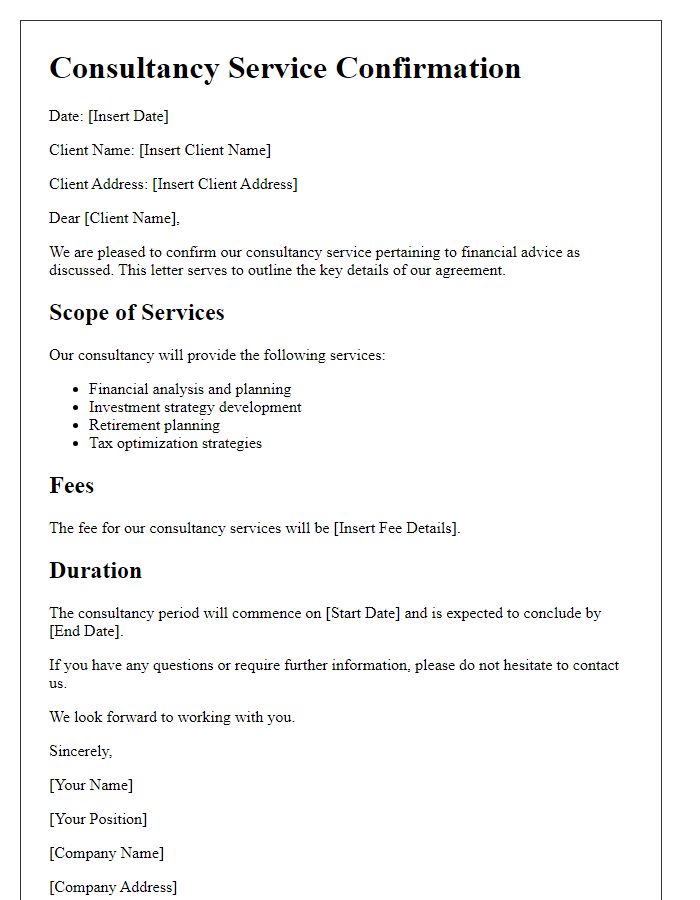
Letter template of consultancy service confirmation for marketing strategies.
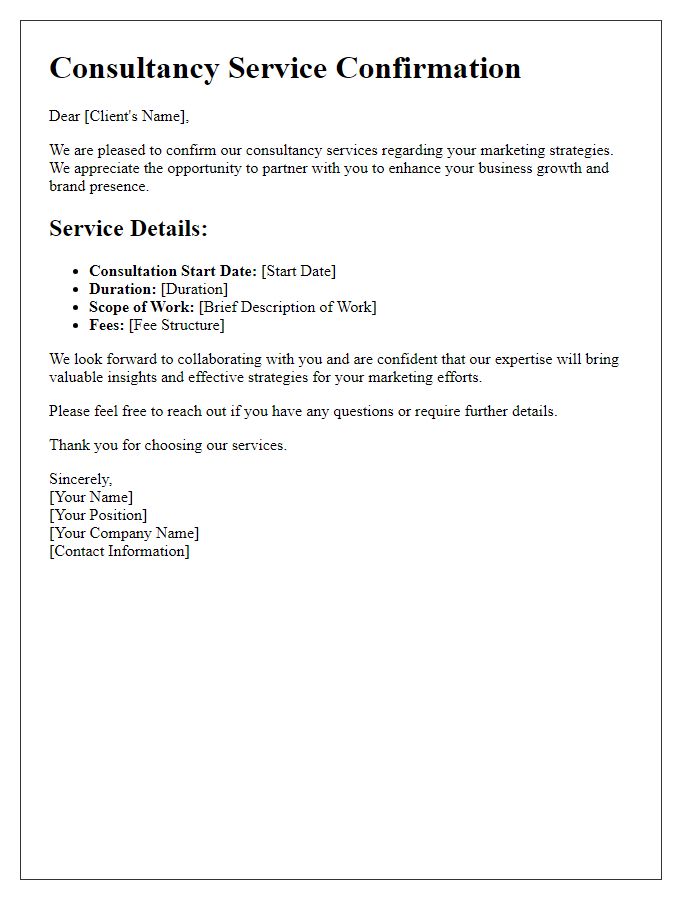
Letter template of consultancy service confirmation for legal assistance.
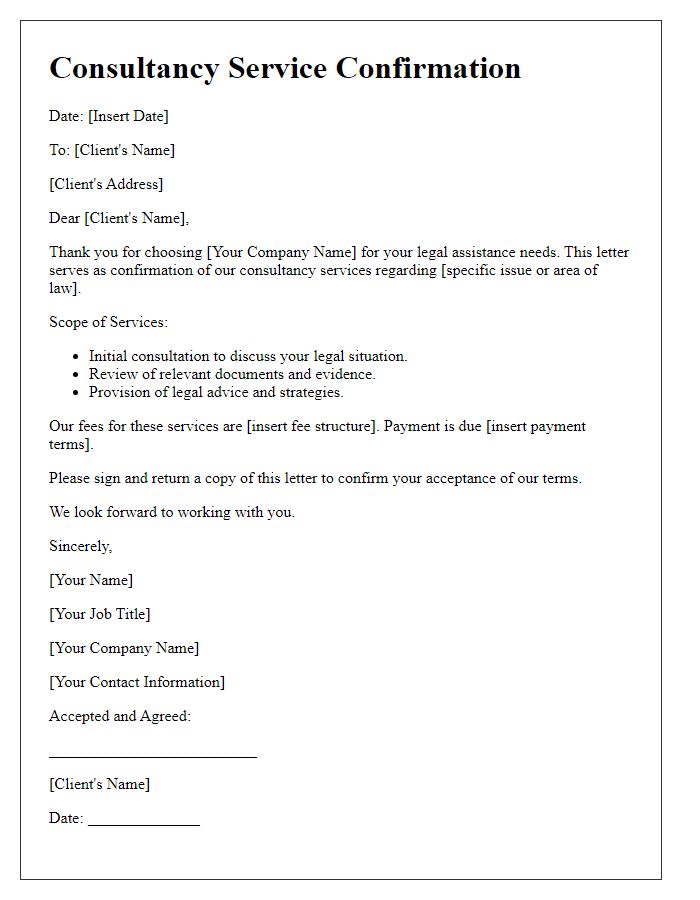
Letter template of consultancy service confirmation for project management.
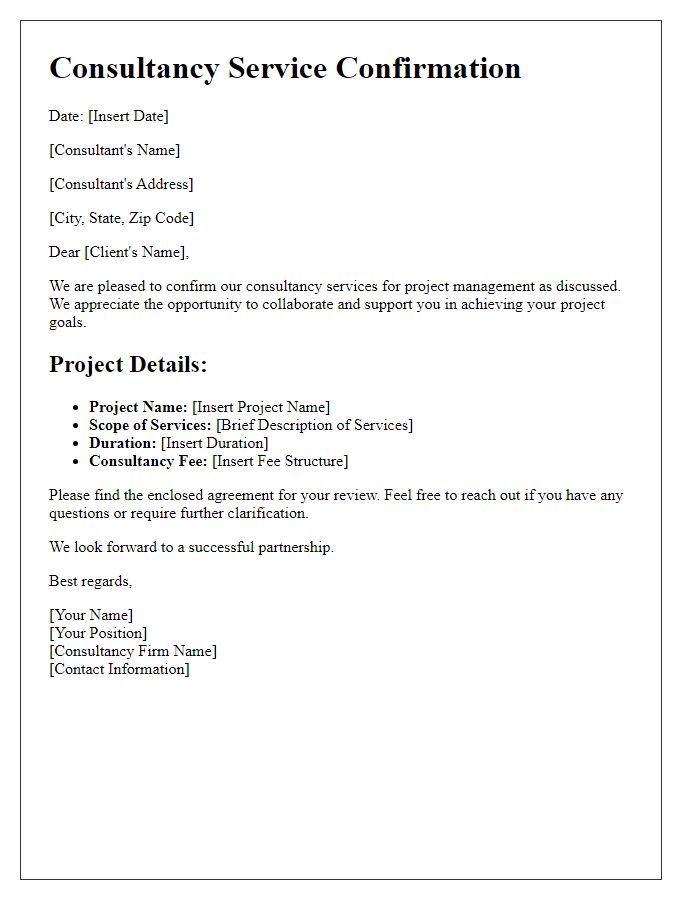
Letter template of consultancy service confirmation for educational services.
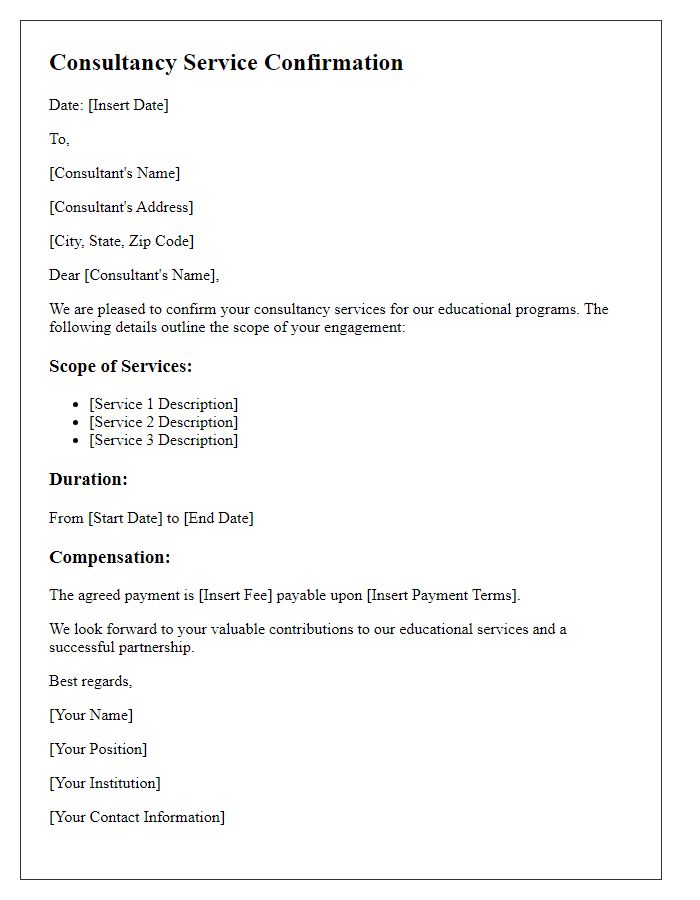
Letter template of consultancy service confirmation for human resources.
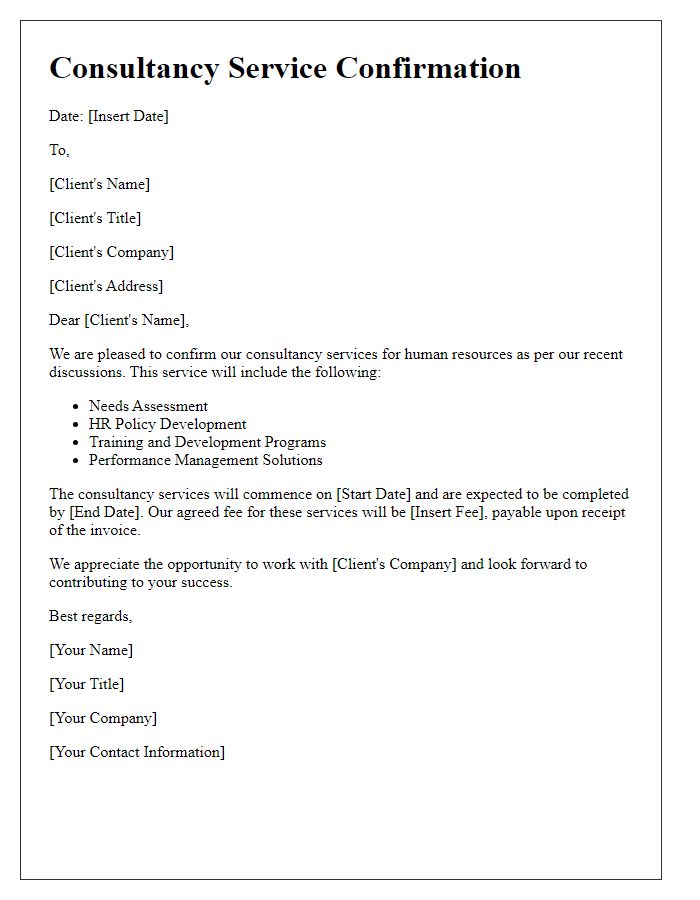
Letter template of consultancy service confirmation for environmental consulting.
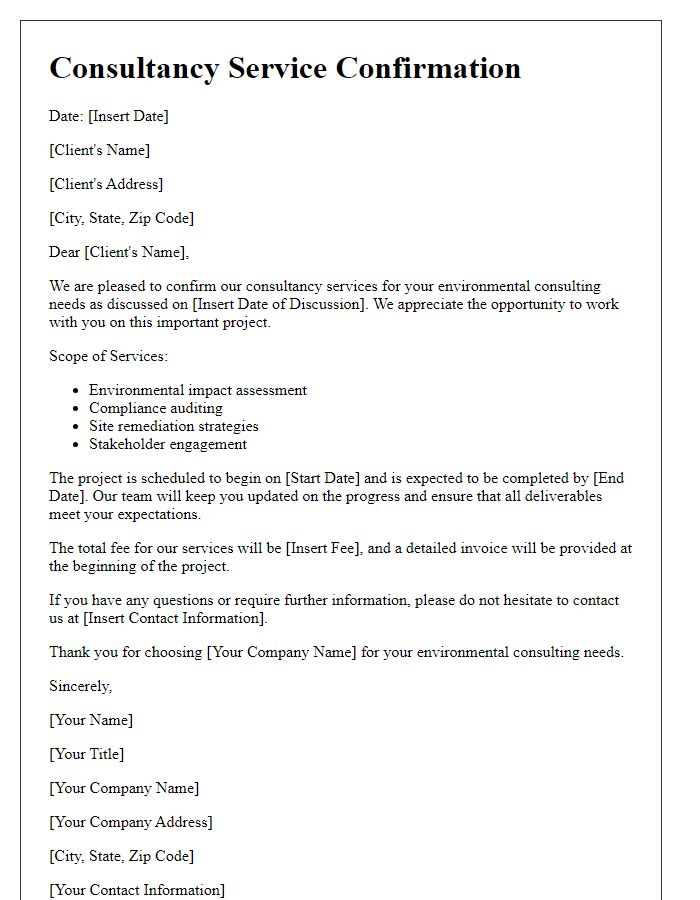

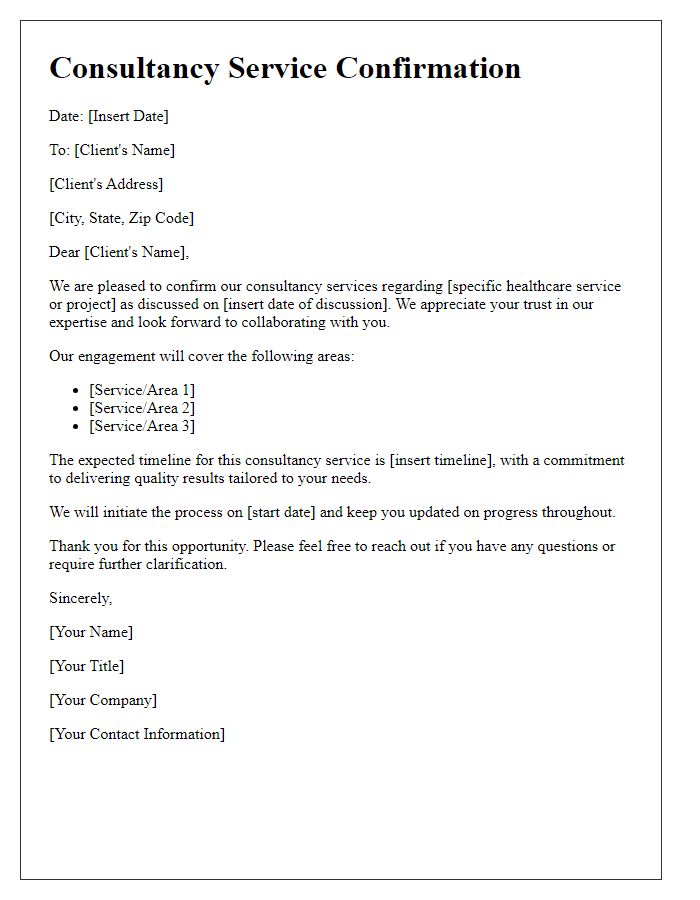
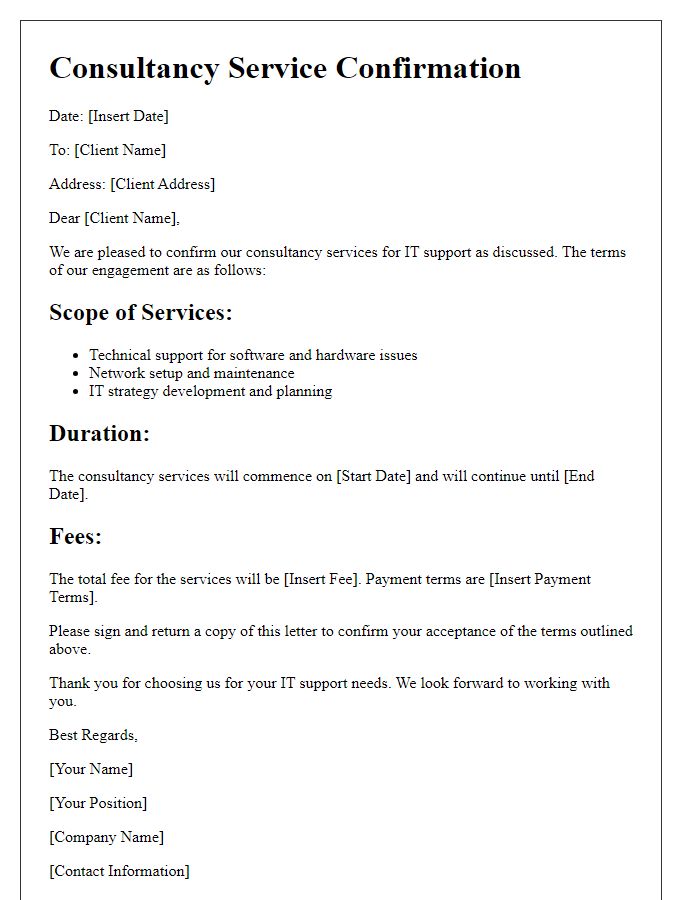
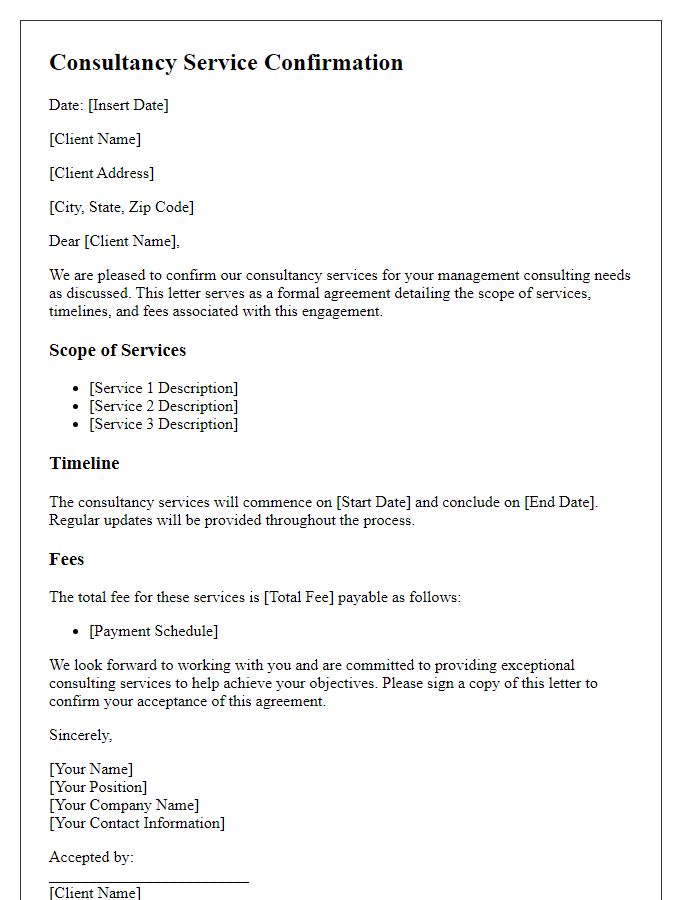


Comments